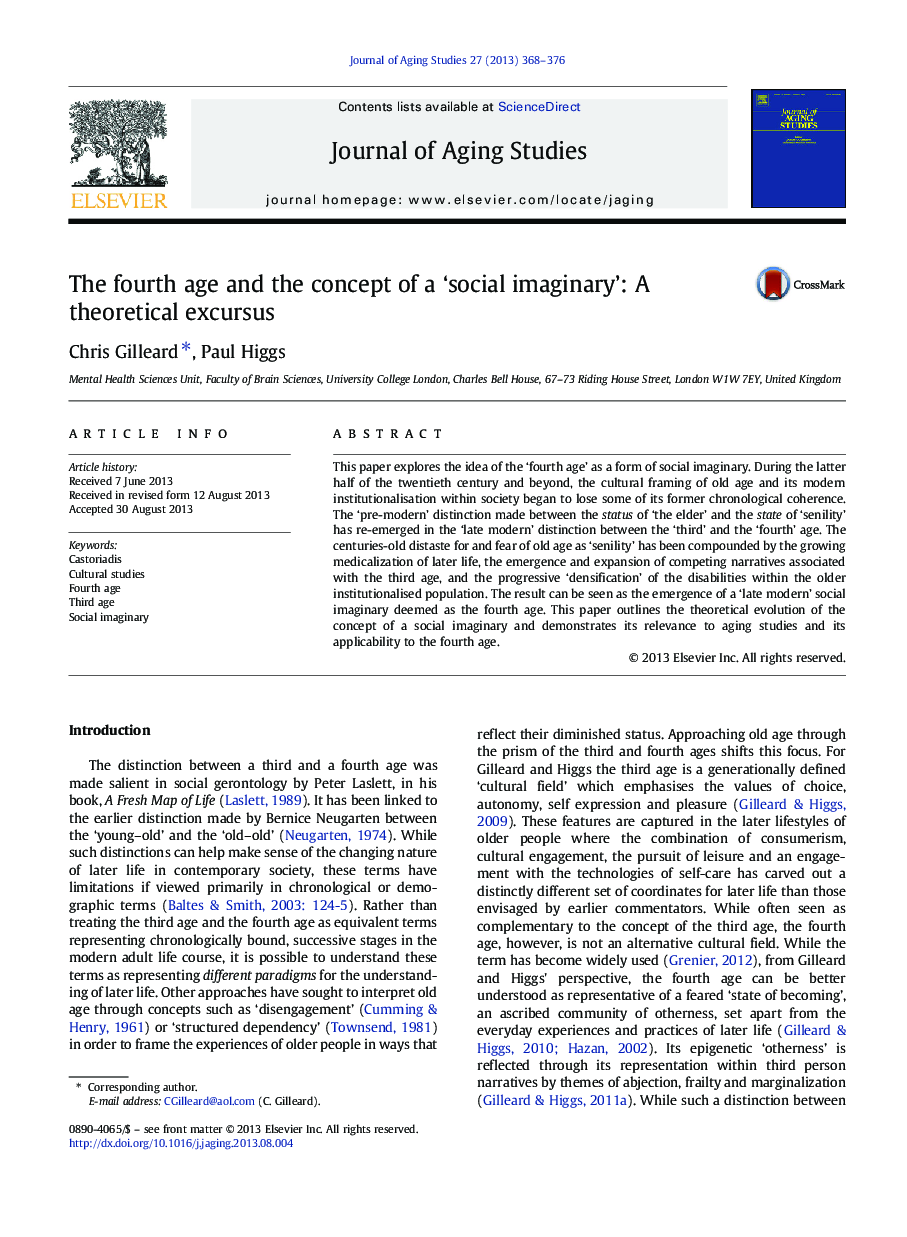| Article ID | Journal | Published Year | Pages | File Type |
|---|---|---|---|---|
| 10513177 | Journal of Aging Studies | 2013 | 9 Pages |
Abstract
This paper explores the idea of the 'fourth age' as a form of social imaginary. During the latter half of the twentieth century and beyond, the cultural framing of old age and its modern institutionalisation within society began to lose some of its former chronological coherence. The 'pre-modern' distinction made between the status of 'the elder' and the state of 'senility' has re-emerged in the 'late modern' distinction between the 'third' and the 'fourth' age. The centuries-old distaste for and fear of old age as 'senility' has been compounded by the growing medicalization of later life, the emergence and expansion of competing narratives associated with the third age, and the progressive 'densification' of the disabilities within the older institutionalised population. The result can be seen as the emergence of a 'late modern' social imaginary deemed as the fourth age. This paper outlines the theoretical evolution of the concept of a social imaginary and demonstrates its relevance to aging studies and its applicability to the fourth age.
Keywords
Related Topics
Health Sciences
Medicine and Dentistry
Geriatrics and Gerontology
Authors
Chris Gilleard, Paul Higgs,
